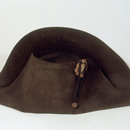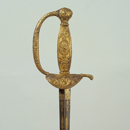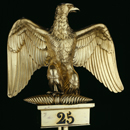The Emperor and the conquest of Europe
Napoleon had gloriously ended his wars against Austria and Prussia and strenghened the Confederation of the Rhine. Once the Duchy of Warsaw was given to the King of Saxony, Poland seemed revived. Italy and Naples belonged to him and his younger brother while Jerome became king of Westphalia. This immense power had created an aura of grandeur which fascinated the eye. In all the countries where his splendid victories were witnessed.the Emperor had become an imposing figure
Sébastien-Joseph de Comeau (1771-1844), Souvenirs of the wars against Germany during the Revolution and the Empire
Despite the peace of Amiens in 1802, tension still existed between France and the United Kingdom, for a variety of political, commercial and colonial reasons. From 1803, the British Prime Minister, William Pitt the Younger, was preparing for war.
Employing a plan originated under the Directory government, Napoleon I planned to invade the British Isles. To defend against this attack, in 1805 the United Kingdom of Great Britain and Ireland entered into the third anti-French coalition with the Austrian and Russian empires: 400,000 men were poised to attack France from the east. Napoleon I abandoned his plans to cross the Channel and instead marched on Vienna. This was the start of a triumphant progress that carried the French army from victory to victory and opened the doors of the greatest capitals of continental Europe.
Between 1805 and 1809, Napoleon's victories redrew the map of Europe in favour of France. His marriage to Archduchess Marie-Louise of Habsburg Lorraine, daughter of the Emperor of Austria, marked the peak of the reign of Napoleon I. Western Europe was organised into a Grand Empire, sometimes called the "Western Empire" in reference to the empires of Rome and of Charlemagne, of which Napoleon I claimed to be the heir.

  
|

|
Watch "Commentary of masterpiece : The Coat of lord Nelson" (length : 1minute 47seconds, english with french subtitles) |

An empire with European references
His heroes were Alexander, Cæsar, and, above all, Charlemagne. He was singularly occupied with his claim to be successor of Charlemagne by right and title
Memoirs of Prince Metternich

The maritime war against the United Kingdom
Napoleon resolved to contain his enemy on the seas, to cut him off from all access to the continent. Unable to attack Britain on land and at sea, he tried to destroy his trade, the pilar of its prosperity and foreign policy.
Memoirs upon the War of 1809: with the separate operations of the Corps of Italy, of Poland, of Saxony, of Naples & of Walcheren, General Pelet

A succession of military victories
Who could resist such numbers commanded by such a man
Memoirs of the Countess Potocka

Napoleon's Grand Empire
Napoleon’s mind, France came in first position and he did everything for its happiness and glory. Other nations were merely used as tools to achieve a higher purpose
Memoirs of Count Józef Ignacy Tadeusz Grabowski, a Polish officer attached to the General Staff of Napoleon I. 1812, 1813, 1814













